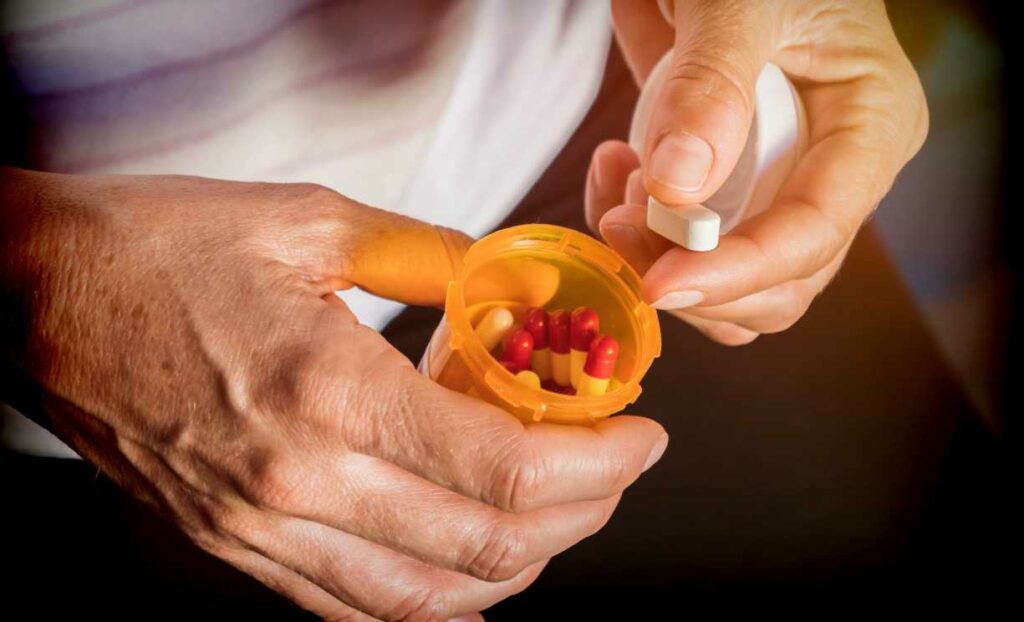As women approach menopause, the natural decline in hormonal levels can lead to a variety of symptoms, ranging from hot flashes to mood swings. While hormone replacement therapy (HRT) is a common approach, many women seek non-hormonal alternatives for managing menopausal symptoms. In this blog, we’ll explore some of the best non-hormonal menopause treatments that offer relief and support during this transformative phase of life.
Contents
Understanding Menopausal Symptoms
Menopausal symptoms are a natural part of a woman’s transition from the reproductive to the non-reproductive stage of life. The most common symptoms arise due to the decline in estrogen and progesterone levels, marking the end of the menstrual cycle. While the intensity and duration of symptoms vary from woman to woman, several common manifestations include:
- Hot Flashes: Sudden and intense feelings of heat, often accompanied by sweating and a flushed face.
- Night Sweats: Episodes of excessive sweating during sleep, contribute to disrupted sleep patterns.
- Insomnia: Difficulty falling asleep or staying asleep, often linked to hormonal fluctuations.
- Mood Swings: Emotional fluctuations, including irritability, anxiety, and feelings of sadness. Hormonal changes can impact neurotransmitters, influencing mood.
- Vaginal Dryness: Reduced moisture in the vaginal area, leading to discomfort, itching, and pain during intercourse.
- Decreased Libido: Changes in hormonal levels can contribute to a reduced interest in sexual activity.
- Weight Gain: Shifts in metabolism and changes in fat distribution may lead to weight gain, particularly around the abdomen.
- Joint Pain: Some women experience joint and muscle pain, possibly due to hormonal changes affecting connective tissues.
- Cognitive Changes: Memory lapses, difficulty concentrating, and cognitive changes are reported by some women during menopause.
- Bone Density Loss: The decline in estrogen levels can contribute to bone density loss, increasing the risk of osteoporosis.
Understanding these symptoms is crucial for women approaching or experiencing menopause. While these changes are a normal part of aging, they can impact daily life and well-being.
Non-hormonal Treatments For Menopause
Non-hormonal treatments for menopause can be effective in managing symptoms for women who either cannot or choose not to use hormonal therapy. Here are some non-hormonal approaches:
- Lifestyle Modifications: Adopting a healthy lifestyle can significantly impact menopausal symptoms. Regular exercise, a balanced diet rich in fruits, vegetables, and whole grains, and maintaining a healthy weight can help manage symptoms like hot flashes and mood swings.
- Dietary Supplements: Certain supplements may offer relief from menopausal symptoms. For example, calcium and vitamin D supplements can support bone health, and black cohosh may help alleviate hot flashes for some women.
- Mind-Body Techniques: Relaxation techniques such as deep breathing, meditation, and yoga can help reduce stress and manage symptoms like anxiety and insomnia.
- Acupuncture: Some women find relief from menopausal symptoms through acupuncture. This traditional Chinese medicine involves inserting thin needles into specific points on the body to promote balance and alleviate symptoms.
- Herbal Remedies: Herbal supplements like evening primrose oil, red clover, and dong quai are believed by some to provide relief from menopausal symptoms. However, it’s essential to discuss the use of herbal remedies with a healthcare provider to ensure safety and effectiveness.
- Cooling Techniques for Hot Flashes: Cooling techniques, such as dressing in layers, using fans, and keeping a cool environment, can help manage hot flashes.
- Cognitive Behavioral Therapy (CBT): CBT can be beneficial for managing mood swings, anxiety, and sleep disturbances associated with menopause. It focuses on changing patterns of thinking and behavior to improve overall well-being.
- Vaginal Moisturizers and Lubricants: For vaginal dryness and discomfort during intercourse, non-hormonal vaginal moisturizers and lubricants can provide relief.
- Prescription Medications: Some non-hormonal prescription medications, such as selective serotonin reuptake inhibitors (SSRIs), may be considered to manage mood swings, hot flashes, and sleep disturbances.
Natural Menopause Treatments
Natural menopause treatment options focus on alleviating symptoms and promoting overall well-being during the transition from reproductive to non-reproductive years. Here are some natural approaches to managing menopausal symptoms:
- Dietary Changes: Embrace a balanced and nutritious diet rich in fruits, vegetables, whole grains, and lean proteins. Include foods with calcium and vitamin D for bone health. Limit the intake of caffeine, alcohol, and spicy foods, as they may exacerbate hot flashes.
- Herbal Supplements: Certain herbs are believed to provide relief from menopausal symptoms. Black cohosh, red clover, dong quai, and evening primrose oil are among the herbal supplements commonly used. However, their efficacy varies, and it’s crucial to consult with a healthcare provider before using them.
- Soy Products: Soy contains phytoestrogens, plant-based compounds that mimic the effects of estrogen. Incorporating soy products like tofu, soy milk, and edamame into the diet may help manage symptoms like hot flashes. However, individual responses vary.
- Flaxseed: Flaxseed is rich in lignans, which have estrogen-like effects. Adding ground flaxseed to meals or smoothies may contribute to symptom relief. It’s advisable to start with small amounts and gradually increase intake.
- Regular Exercise: Engage in regular physical activity to maintain a healthy weight and improve overall well-being. Exercise has been shown to reduce the frequency and severity of hot flashes, improve mood, and support bone health.
- Acupuncture: Acupuncture involves the insertion of thin needles into specific points of the body. Some women find that acupuncture helps reduce the frequency and intensity of hot flashes and may improve overall energy and well-being.
- Vitamin D and Calcium: Adequate intake of vitamin D and calcium is essential for bone health during and after menopause. Incorporate foods like dairy products, leafy greens, and fortified cereals. If necessary, consider supplements after consulting with a healthcare provider.
Conclusion
In conclusion, finding the best non-hormonal menopause treatments involves a thoughtful exploration of various approaches to alleviate symptoms and enhance overall well-being during this transformative phase of life. The array of natural remedies, lifestyle adjustments, and non-hormonal medical interventions provides women with a diverse toolkit to manage symptoms like hot flashes, mood swings, and sleep disturbances.
It’s crucial to approach menopause with a holistic mindset, considering not only the physical symptoms but also the emotional and mental aspects of this transition. Consulting with healthcare professionals ensures that chosen treatments align with individual health profiles, promoting safety and effectiveness.
If you are facing menopause related issues, menopause treatment at HerMantra can help. Book your free trial online menopause treatment session now.




